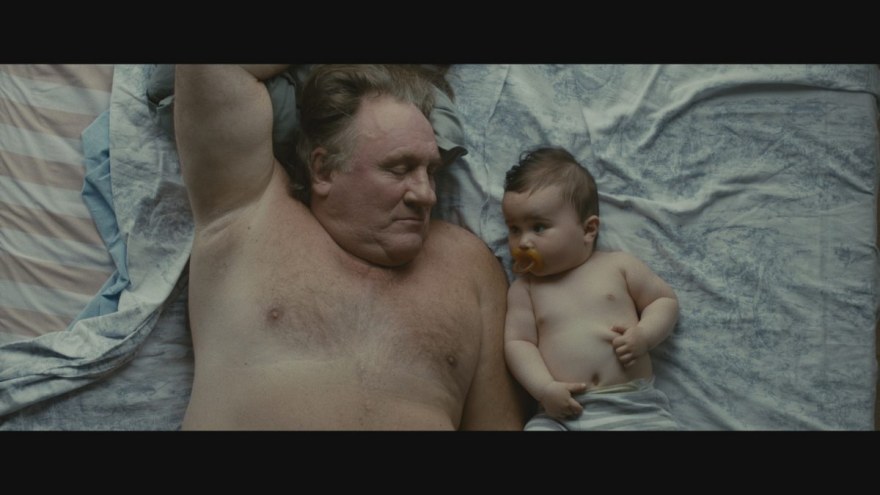Breakfast with Rhapsody
Interview with Constance Meyer, director of Rhapsody
Why were you interested in intergenerational relationships and the bond that is formed between this senior babysitter and the baby he watches over?
In the beginning, I was interested in filming something of a sensual nature during the heat wave that hit Paris last July. I wanted to show Depardieu’s massive body next to the small, fragile body of the child. But what I found the most interesting to explore was the inversion that could happen: Gerard, in the film, is much more vulnerable than the child. It was like the child was looking after him.
Why were you interested in the babysitter character, in his questionings, in his sincere desire to be useful to others?
I wanted to create a character faced with solitude, who lives in his own world, in the top of a tower. The only “real” incursions into his life are the baby and the man at the bar, but also the sounds from outside and the view of the esplanade below.
How did you set about the casting for your characters?
I thought of Depardieu once I had written the script. As for the baby, I “met” a few, and it was Arsene (the baby in the film) who won the role. He is my costume supervisor’s nephew, and when I saw him I knew right away that he would be perfect with Gerard. I was sort of looking for a mini-Depardieu.
Why did you choose to give such little background about your main character?
It was intentional to not include the past and psychology of my characters. I wanted to make a film where every moment is lived through what we see and feel. It is more a contemplative film where the explanations belong to each viewer, who will each have their own interpretation, their own feeling.
Why did you choose an urban setting instead of the countryside?
I am attracted to the urban environment. I really like the architecture, the concrete, the towers, the mixture of the vertical and the horizontal in this neighborhood of the Olympiades. I wanted the decors to speak as much as the characters.
Did you write Rhapsody as a fragment of life, a quick glance at the daily life of this character, or in your mind did you imagine a greater whole, including a “before” and an “after”?
Rhapsody is a fragment of life. We can see it as a very fleeting, “individual” fragment, but also as a tale, as something more universal at the same time.
We often speak of fear of the unknown. But do you think there is a fear of isolation? Can that be more frightening than the unknown?
Yes, of course, the fear of isolation, of solitude. I think it is something extremely common these days. It seems to me that the fear of the unknown and the fear of solitude are quite similar, as they surely come from the same place: we need the Other, contact with others.
Do you think short film is effective in questioning the meaning of family and of “macro” social units?
For me, whether it be short or long, a film is first and foremost an exploration or an artistic endeavor, but it is also obviously a privileged tool to address subjects or themes such as family or relationships with society.
Rhapsody was either produced, co-produced or self-financed with French funds. Did you write the film with this “French” aspect in mind: in building the film’s context or in questioning certain notions?
Yes, when I write and conceive a film, I am very attached to the geographical anchoring, to the scenery, the climate, the language used. For Rhapsody, I immediately anchored the story in an urban setting with its towers in the middle of the summer. This film would have been very different if it had been shot in the middle of winter in the countryside, or next to the sea.
Rhapsody is being shown in National Competition F10.








